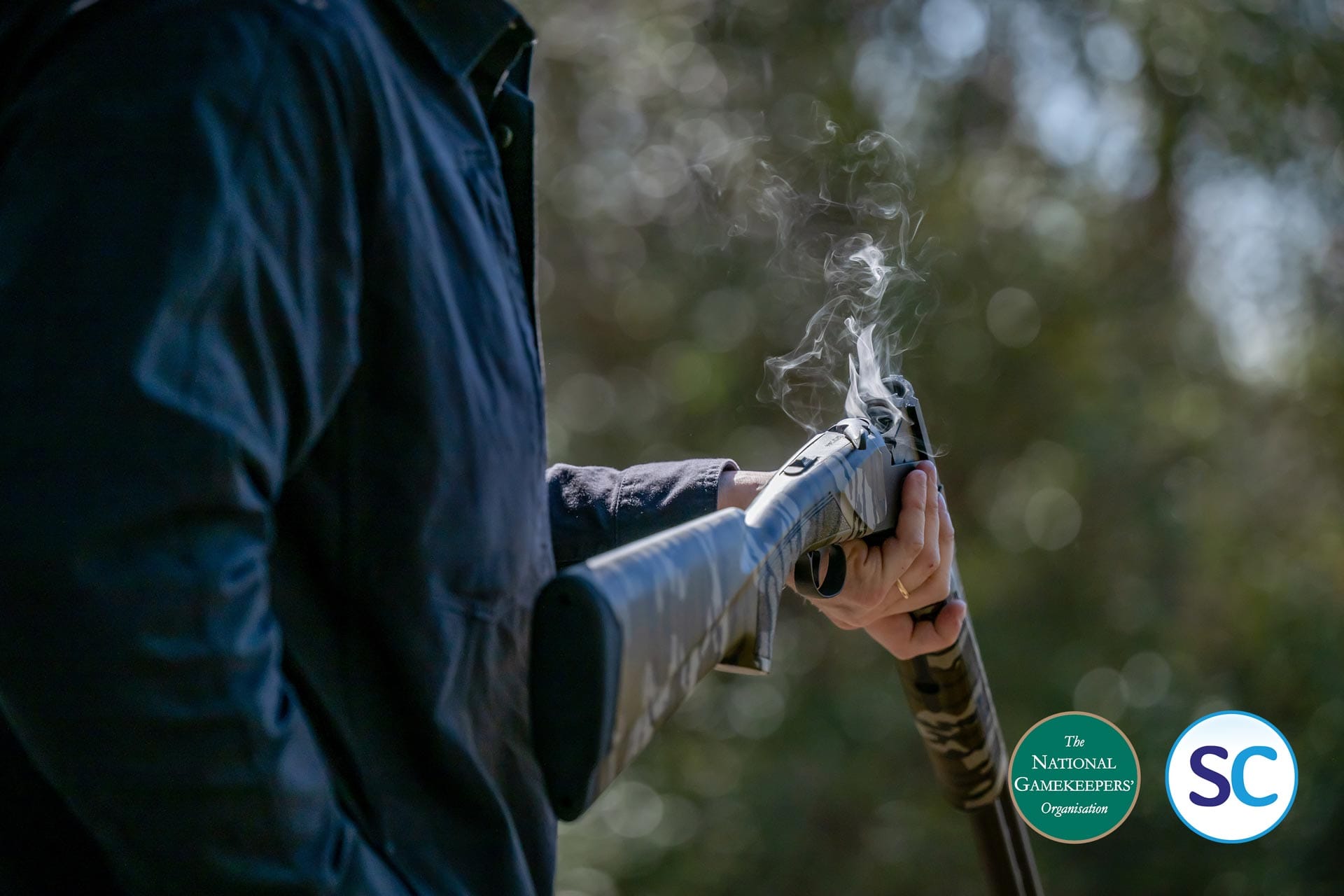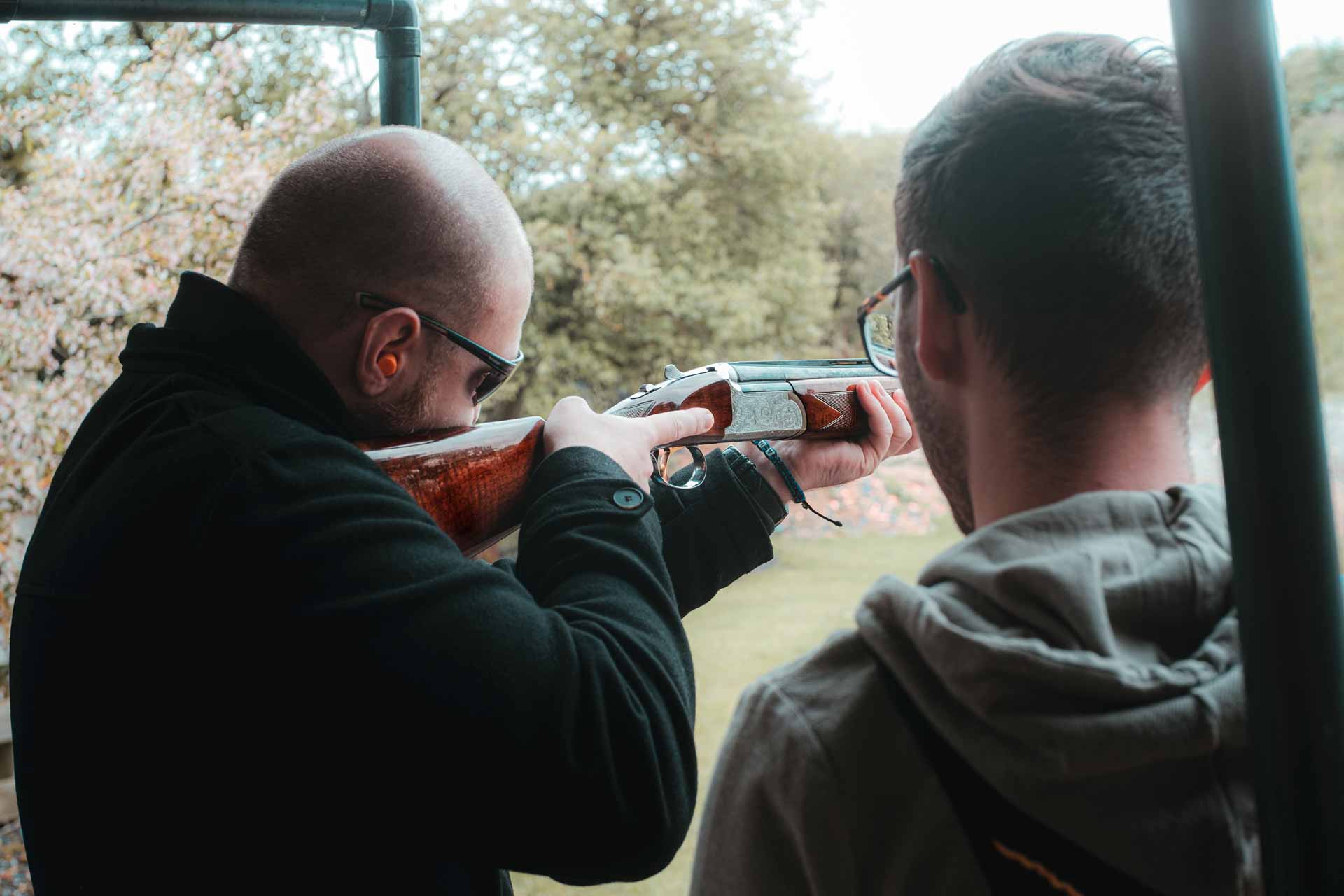
Chris Garrett, medical doctor and founder of ShootCert Ltd, says it’s time to dispel the myths and adopt a common sense approach.
Statistically, one in four of us will develop a mental health issue at some point in our lifetime, with ‘depression’ being by far the most common affliction.
The Covid pandemic, the combination of recent world events, the post-Covid landscape of changing work patterns, and now considerable financial hardships, have done nothing to improve that statistic. Being a gamekeeper is enormously rewarding, but it is lonely and isolating at times. It is this, combined with the recent problems outlined above, that makes them so vulnerable to mental health pressures. New legislation means that all shotgun and firearms licences – without exception – require a medical certificate for every application, regardless of whether it is for a first-time grant or a renewal.
Unfounded concerns that a history of depression in medical notes might impact negatively on the grant of a licence or renewal are preventing some from seeking the medical help they need. It has therefore been disturbing to read recently some ill-informed comments and suggestions on this topic. A post on social media recently said: “Anybody with a gun licence who develops a mental health issue should not consult with their GP as that could prevent them getting a shotgun certificate renewal. Or at the very least, being circumspect with what one mentions to the GP would be a sensible plan.” This glosses over the important fact that such a cover-up will also prevent the applicant from receiving the medical treatment or support they need at a difficult time.
I hope this article will dispel such a ridiculous misconception and bring current thinking on this topic up to date. Firstly, it is important to note that the Home Office recognises that depression is not an automatic bar to being granted a certificate. It understands that many people suffer from a degree of depression during the normal ebb and flow of life, or after common life events such as bereavement. Its current Statutory Guidance to Police states:
“The fact that a person has received treatment in the past for certain illnesses or conditions, such as depression or stress, does not make them automatically unsuitable to possess a firearm.”
Licences for gun ownership are more secure if certificate holders are honest, and help to build trust and confidence with the Police.
The guidance continues:
“It is one of the factors to be considered with all other evidence relating to the applicant’s character and history. In such cases, account should be taken of the most recent medical information.”
Unfortunately, and somewhat confusingly, there are differences between the law and the guidance notes issued to applicants during the application process.
Often-quoted articles written in the shooting press, state that in law: “There is no statutory duty to notify the Police if you have started to suffer from depression during the life of the certificate.” In reality, on renewal of your certificate, you must answer the box relating to your mental health history truthfully and declare any depression. If you do not, you commit an offence.
But as part of a shotgun certificate application, you also confirm that you have read the guidance notes that support your application, and these state that after the certificate is issued you have consented to information sharing between your GP and the Police, both in the application process and during the five years in which the certificate is valid. You are therefore expected to inform the Police if you are subsequently diagnosed with a relevant medical condition, such as depression. In other words, the spirit of the law demands that you inform them of a change in medical circumstance that might affect your suitability for gun ownership before the certificate is due for renewal.
As it stands, anybody in the UK has a right to apply for a firearm certificate. However, the granting of that certificate is a privilege and not a right. As Chris Downs of the Metropolitan Firearms Department explains: “Grant by the Police is based on both trust and confidence that you are safe to possess a gun for the duration of that licence.” Any failure to declare a relevant medical condition at any point, either during the application or during the period of the licence, is incompatible with building that trust and confidence. So, if someone develops depression, and this only comes to light at the time of renewal, then the Police could quite understandably take a dim view when considering the suitability of such an applicant.
On the other hand, if that same person does develop depression and complies with their responsibility to report this to the Police firearms team at the time, then it does not mean that person will lose their firearms. On the contrary, it re-enforces the trust and confidence that the Police need. They may well conduct a risk assessment, but things are now very much in the gun holder’s favour. That person has recognised a problem, has sensibly attended a GP for support, and has demonstrated the first steps on the road to recovery. It is therefore crucial to remember that the Home Office considers that depression is not an automatic bar to possessing a firearm and that you should be honest with the Police at all times.

Example cases and what you should do in similar circumstances
Example case 1
Mr Jones enjoys his shooting and meeting up with his friends for a round at his local clay shooting club on Thursday evenings. Unfortunately, he was made redundant two months ago but was managing this reasonably well. Sadly, his wife has now just passed away and he has developed a reactive depression.
He does the logical thing and goes to see his GP for support. He was started on antidepressant medication and referred for counselling. Likewise, he was monitored by his GP. Furthermore, he recovered well and in time he was weaned off the medication. The police were informed of the situation at the time. In fact, he was encouraged to continue shooting, with its positive social benefits along with the clear camaraderie and social support of his mates. He looked forward to his Thursday evenings shooting and the clear benefits this brought, with perhaps a drink in the company of his supportive friends in the local pub afterwards.
His licence came up for renewal but his otherwise supportive GP surgery does not engage in this process. He therefore applies to us at ShootCert, a specialist third-party provider, for a medical certificate. Rather than simply going through a tick box exercise, as others will do, we will provide a proper explanatory note.
For example under the ‘depression’ heading we may report;
“Mr Jones developed a period of depression two years ago. The clear catalyst for this was an unfortunate redundancy compounded by a bereavement reaction when his wife passed away. He sensibly attended his GP for support at that time and was given a short course of antidepressant medication. He was also referred for bereavement counselling which he attended. He recovered well and six months later was weaned from his antidepressants, and I can confirm that he has remained fit and well from this point of view since that time. As such this episode was reactive, isolated, and now historic.”
In our experience, the police will look highly favourably on his application, along with the certificate from ShootCert and it should be renewed as a routine.
Example Case 2
Mr Smith unfortunately experienced similar redundancy and bereavement. Understandably, he developed the same depression.
However, conscious that his shotgun licence was up for renewal the following year, he took heed of advice on social media. He decided not to attend his GP for support, but to soldier on the best he could. His depression got worse, but he refused to seek help.
When asked for a medical certificate to support his renewal application, there was nothing in his medical records to report as he had not presented with any depressive symptoms. He was, however, not in a good place and was clinically depressed and getting worse. However, there would be nothing to draw this to the attention of his firearms department.
So what should you do if this happens to you?
- Firstly, discuss the matter with your GP and plan how to tackle the depression. Your personal well-being comes before even your employment as a gamekeeper, let alone shooting as a pastime.
- Keep your local Police Firearms Department informed. It is a mistake not to declare something that wouldn’t necessarily have stopped the certificate from being granted. Police quite rightly consider it an honesty issue to fail to declare matters of relevance.
- Remember that Police Firearms Departments are there to work with you and not against you.
- If you are having difficulty getting access to counselling, the Gamekeepers’ Welfare Trust can provide advice.
- When you need a medical certificate, think about going to a reputable specialist company.